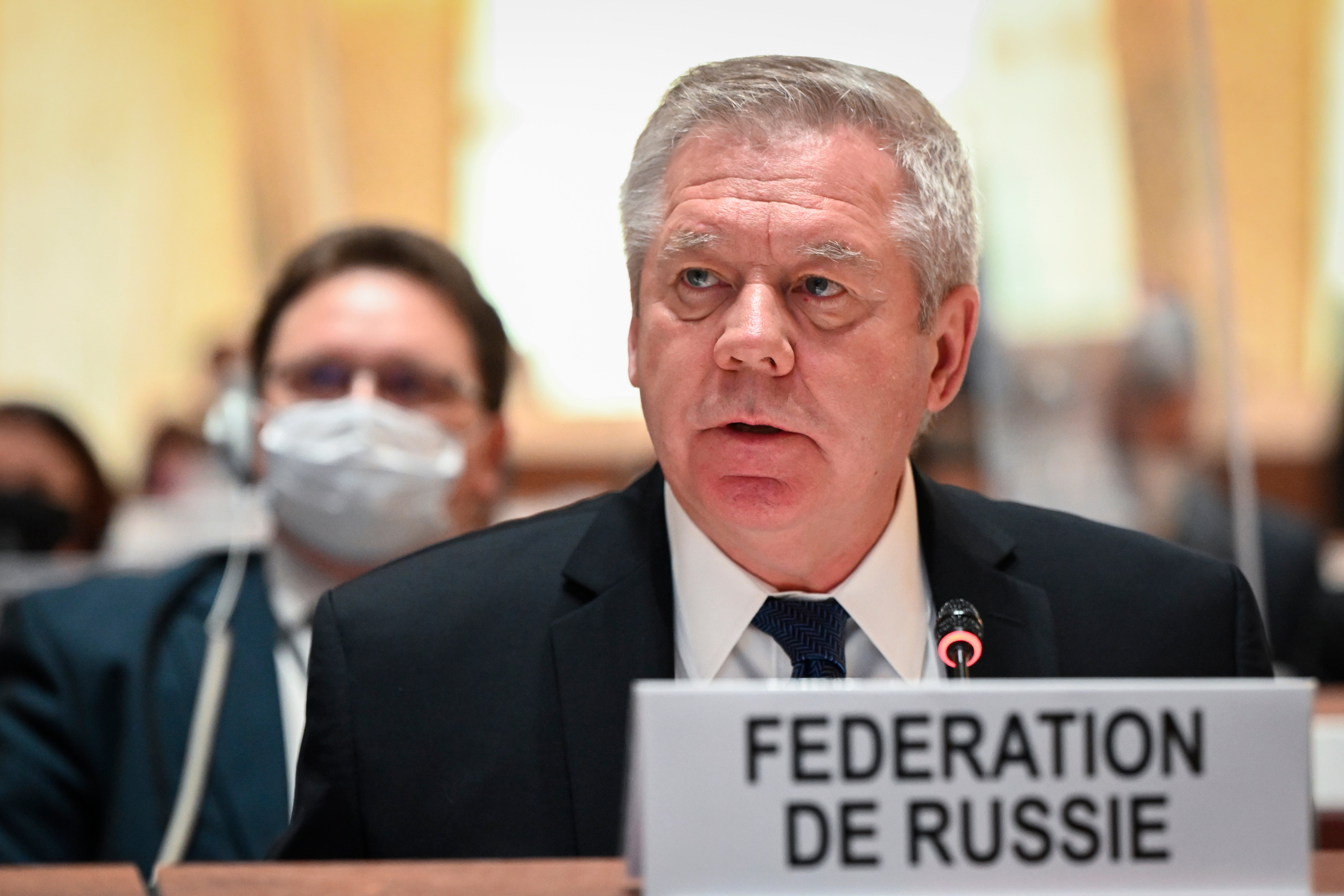Russian official says 'practical' issues delay visit to POWs
A Russian diplomat says the International Committee of the Red Cross has conducted at least five visits to Ukrainian prisoners of war since Russia invaded Ukraine

The International Committee of the Red Cross has conducted at least five visits to Ukrainian prisoners of war since Russia invaded Ukraine, a Russian diplomat said Thursday while insisting that “practical arrangements” were holding up a trip to a prison where dozens of POWs died.
Gennady Gatilov, Russia’s ambassador in Geneva, said it was unreasonable to think Red Cross teams could visit all of the more than 6,000 Ukrainian POWs. Some critics say the Geneva-based ICRC has not done enough to try to obtain access to Russian detention centers.
The humanitarian organization said Sunday that it has an 11-person team ready to visit any POWs in separatist-held areas of Ukraine's eastern Donetsk region, including those held at the Olenivka prison.
Russian and Ukrainian authorities accused the other of a July 29 attack that destroyed a barracks at the separatist-run prison. At least 53 Ukrainian POWs died and dozens more were wounded, according to Russian and separatist authorities.
The international Red Cross would “check on the conditions of internment and treatment, deliver essential supplies, and ensure the prisoners of war can contact their families," the organization said.
The Red Cross reiterated it has been unable to visit all the sites it wanted to in connection with the war in Ukraine.
“Blaming the ICRC for being denied full and immediate access does not help prisoners of war or their families,” it said.
Gatilov suggested that security concerns were responsible for delaying another possible visit to the prison in Olenivka, a settlement controlled by the Moscow-backed Donetsk People’s Republic.
“What the ICRC wants is security for these visits,” he told reporters. “Sometimes … it’s not easy to provide that sort of security because the shelling is continuing, and specifically the shelling of the area of Olenivka.”
“Our counterparts in the Red Cross, they understand. They still believe that they can do this,” he said. “They will do this in the future. And the only thing we need is just to discuss the practical arrangements for this visit. From the point of view of security, first of all."
Jason Straziuso, a spokesman for the International Committee of the Red Cross, declined to specify how many POWs or places of internment that the organization's staff members had visited. He said such figures were part of a “confidential, bilateral dialogue” with the sides in the conflict.
“While we have been given access at a high level, the practical arrangements needed to carry out a visit could not be completed such as to guarantee our team’s safety,” he said.
Alexander Pchelyakov, a spokesman for the Russian mission in Geneva, specified after Gatilov's briefing the five dates when ICRC teams already had visited Ukrainian POWs: in Crimea’s Sevastopol on April 11, May 19 and August 4; on May 19 in Olenivka and the Azov Sea coastal town of Novoazovsk; and a July 28 trip to Mulino, a rural area in Russia near the city of Nizhny Novgorod.
In comments that diverged from the findings of U.N. human rights experts and other independent monitors, Gatilov claimed that Ukrainian prisoners of war were “treated quite well” while Russians held by Ukrainian authorities have been subject to torture and “psychological” and “physical” pressure that violates the Geneva Conventions.
A U.N. team of experts last month cited testimonies of beatings, electric shocks and forced nudity in Russian detention facilities.
___
Follow AP's coverage of the war in Ukraine: https://apnews.com/hub/russia-ukraine
Bookmark popover
Removed from bookmarks